Alumni News
Mr. Evan F. Lucas (STH’58)
This obituary was originally published on The Herald, from Jul. 9 to Jul. 10, 2021.
 Evan Frederick Lucas, 91, of Stanwood, Washington, passed away peacefully on June 17.
Evan Frederick Lucas, 91, of Stanwood, Washington, passed away peacefully on June 17.
Evan was born March 23, 1930 in Seattle to Harold and Joy Lucas and grew up in the Roosevelt district. After graduating Roosevelt High School in 1948 Evan attended the University of Washington where he met his wife of 52 years, Joan Lucas, who passed away in 2006. They moved to Boston with their son Stan in 1956 where Evan earned his master's degree in Religious Education at Boston University. Upon their return to the Pacific Northwest, sons Paul and Ken were born and the family lived many happy years in Everett. Evan was the on-site manager of the Deaconess Children's Home for several years before he returned to school earning a second master's degree in Social Work at the University of Washington. For over 30 years he worked proudly as an administrator for Washington State's child welfare services as well as the state's work incentive program at the Department of Social & Health Services, helping to 'make a difference', as he sometimes put it. In 1989, Evan and Joan moved to their lakeside home at Lake Martha near Stanwood where they enjoyed a peaceful lifestyle.
An audiophile of hi-fi jazz and classical music, as well as being a crafty woodworker, Evan spent many hours of pastime building a range of hand-made speakers to accompany his keen selection of audio equipment throughout his early years as a father - much to the rock n' roll joy of his teenage sons later! He was also an avid collector of brass antiques and curiosities which adorned his home, much like a museum, to the delight of all who visited. Evan and Joan were supporters of the local chapter of the Audubon Society and frequently participated in birding excursions for wildlife conservation and sightseeing. A member of the United Methodist Church of Marysville, Evan attended services regularly for many years and maintained friendships there into his later life.
Evan is survived by his sons Stan, Paul and Ken; his daughters-in-law Carol Myre-Lucas, Fiona Knight-Lucas and Michiyo Karita-Lucas; and his grandchildren Gabriel Lucas, Harry Lucas and Charlie Lucas.
March 23, 1930 - June 17, 2021
BUSTH Announces Distinguished Alumni for 2021
July 22, 2021 – The Boston University School of Theology (BUSTH) is pleased to announce this year’s Distinguished Alumni for 2021. A list of previous winners can be found on the BUSTH website.
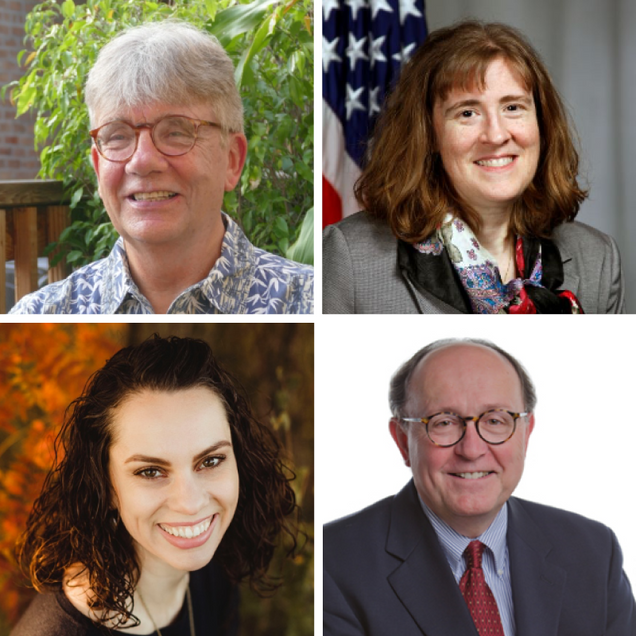 “The 2021 Distinguished Alumni magnificently embody the visionary, transformative leadership needed in this world today,” says G. Sujin Pak, dean. “From a profound vision for prison chaplaincy to powerful LGBTQIA+ activism and advocacy to erudite cultivation of knowledge of global Christianity and women leaders in world Christianity to advanced facilitation of conflict management, effective change, and innovative leadership development, these amazing and gifted leaders bring concrete visibility to the aspirations of theological education, the witness of the Christian gospel, and the hope of renewal and rejuvenation in our churches, communities, social systems, and academies. We are profoundly grateful for these trailblazers and proud to call them our own!”
“The 2021 Distinguished Alumni magnificently embody the visionary, transformative leadership needed in this world today,” says G. Sujin Pak, dean. “From a profound vision for prison chaplaincy to powerful LGBTQIA+ activism and advocacy to erudite cultivation of knowledge of global Christianity and women leaders in world Christianity to advanced facilitation of conflict management, effective change, and innovative leadership development, these amazing and gifted leaders bring concrete visibility to the aspirations of theological education, the witness of the Christian gospel, and the hope of renewal and rejuvenation in our churches, communities, social systems, and academies. We are profoundly grateful for these trailblazers and proud to call them our own!”
A celebration of these alums and their achievements will be part of a special hybrid Community Day, scheduled for Wednesday, September 15, 2021.
2021 School of Theology Distinguished Alumni
Mr. Mark Bowman (STH 1982, MDiv)
Reverend Heidi Kugler (STH 1997, MDiv)
Reverend Dr. Gilbert Rendle, Jr. (STH 1972, MDiv)
In the category of Emerging Leader:
Dr. Gina Ann Zurlo (STH 2017, PhD)
2021 Distinguished Alumni Biographies
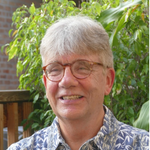 Mark Bowman (1982, MDiv), long-time advocate for LGBTQ justice, was raised in north central Ohio and earned an MDiv at Boston University School of Theology in 1982. Denied clergy status in The United Methodist Church as a gay man, he worked for Bread for the World following seminary and was active with Affirmation: United Methodists for LGBT Concerns. He was among the founders of the Reconciling Congregation Program (now Reconciling Ministries Network) in 1984 and served as co-coordinator and then as executive director, guiding the expansion of this grass roots movement until 1999. There he published the award-winning Open Hands magazine and became a leader in the ecumenical Welcoming Church Movement. Bowman subsequently organized two national conferences of this ecumenical movement, Witness Our Welcome (WOW) 2000 and 2003, each drawing hundreds of participants. The Methodist Federation for Social Action honored Bowman with the Lee & Mae Ball Award for Outstanding Christian Social Witness in 2000. An ongoing interest in history led him to initiate the LGBTQ Religious Archives Network (LGBTQ-RAN) in 2001. LGBTQ-RAN is an innovative grass roots project drawing on digital technology to preserve the history of LGBTQ religious movements around the world. He currently serves as executive director of this unique historical enterprise. Also a trained musician, Bowman has served as choir director, song leader and accompanist in a number of congregations. He trained with the United Methodist Global Praise program and the Iona Community (Scotland) as enlivener of congregational song and has led singing and worship in local, regional and national gatherings. He currently lives in Chicago where he enjoys biking, gardening and hanging out with his three grandchildren.
Mark Bowman (1982, MDiv), long-time advocate for LGBTQ justice, was raised in north central Ohio and earned an MDiv at Boston University School of Theology in 1982. Denied clergy status in The United Methodist Church as a gay man, he worked for Bread for the World following seminary and was active with Affirmation: United Methodists for LGBT Concerns. He was among the founders of the Reconciling Congregation Program (now Reconciling Ministries Network) in 1984 and served as co-coordinator and then as executive director, guiding the expansion of this grass roots movement until 1999. There he published the award-winning Open Hands magazine and became a leader in the ecumenical Welcoming Church Movement. Bowman subsequently organized two national conferences of this ecumenical movement, Witness Our Welcome (WOW) 2000 and 2003, each drawing hundreds of participants. The Methodist Federation for Social Action honored Bowman with the Lee & Mae Ball Award for Outstanding Christian Social Witness in 2000. An ongoing interest in history led him to initiate the LGBTQ Religious Archives Network (LGBTQ-RAN) in 2001. LGBTQ-RAN is an innovative grass roots project drawing on digital technology to preserve the history of LGBTQ religious movements around the world. He currently serves as executive director of this unique historical enterprise. Also a trained musician, Bowman has served as choir director, song leader and accompanist in a number of congregations. He trained with the United Methodist Global Praise program and the Iona Community (Scotland) as enlivener of congregational song and has led singing and worship in local, regional and national gatherings. He currently lives in Chicago where he enjoys biking, gardening and hanging out with his three grandchildren.
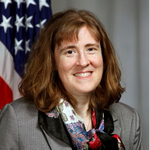 Reverend Heidi Kugler (1997, MDiv) is a graduate of the College of Wooster with her a BA in Sociology and Minors in Religious Studies and Africana Studies. She earned her Masters of Divinity with a specialization in Biblical Studies from Boston University School of Theology. She has completed two units of Clinical Pastoral Education. Heidi is an Ordained Elder from the Greater NJ Annual Conference of the United Methodist Church, a Certified Correctional Chaplain with the Association of Correctional Chaplains Association, and serves on the advisory board of the Chaplaincy Innovation Lab, a professional chaplaincy think tank.
Reverend Heidi Kugler (1997, MDiv) is a graduate of the College of Wooster with her a BA in Sociology and Minors in Religious Studies and Africana Studies. She earned her Masters of Divinity with a specialization in Biblical Studies from Boston University School of Theology. She has completed two units of Clinical Pastoral Education. Heidi is an Ordained Elder from the Greater NJ Annual Conference of the United Methodist Church, a Certified Correctional Chaplain with the Association of Correctional Chaplains Association, and serves on the advisory board of the Chaplaincy Innovation Lab, a professional chaplaincy think tank.
Currently she serves as the national Chaplaincy Administrator for the Federal Bureau of Prisons in Washington, DC. As the Chief of Chaplains for the agency, she provides executive oversight to chaplaincy departments in all 122 federal prisons nationwide. Along with her Central Office Chaplaincy team, she seeks to guide religious accommodations across faith lines, policy development, national training, branch hiring, and faith-based reentry for the agency. Prior to entering the agency, she served as a parish pastor, as well as a chaplain at a county jail and in a state prison in NJ. Her previous Bureau of Prisons duty stations include FDC Honolulu as the Supervisory Chaplain and FCI Fort Dix as the Staff Chaplain.
At a young age, Heidi learned the gift of serving others as a means to give back to God for the many blessings she has received. Over the years, she has served the needs of congregations, at risk youth, poor and homeless persons, incarcerated populations as well as those in the hospital and the elderly. She has a passion for offering the grace of God to break the chains of person’s hearts and lives. Heidi is blessed with a loving husband and three amazing children. She enjoys spending time with family and friends, exercising, reading, watching movies and going to the beach!
 Reverend Dr. Gilbert Rendle, Jr. (1972, MDiv) most recently served as Senior Vice President with The Texas Methodist Foundation in Austin Texas and as an internationally respected independent consultant working with issues of change and leadership in Protestant, Catholic and Jewish denominational systems. Prior to this position he served the Alban Institute as an author, seminar leader and senior consultant for twelve years. An ordained United Methodist minister, Rendle served as senior pastor of two urban congregations in Pennsylvania for sixteen years and as a denominational consultant for The United Methodist Church for nine years.
Reverend Dr. Gilbert Rendle, Jr. (1972, MDiv) most recently served as Senior Vice President with The Texas Methodist Foundation in Austin Texas and as an internationally respected independent consultant working with issues of change and leadership in Protestant, Catholic and Jewish denominational systems. Prior to this position he served the Alban Institute as an author, seminar leader and senior consultant for twelve years. An ordained United Methodist minister, Rendle served as senior pastor of two urban congregations in Pennsylvania for sixteen years and as a denominational consultant for The United Methodist Church for nine years.
Rendle has an extensive background in organizational development, group and systems theory, and leadership development. He has consulted with congregations on conflict, planning, staff and leadership development, and issues of change. He is well known for his work with middle judicatory and national denominational offices and staff as they wrestle with institutional change.
In training workshops and conferences, Rendle has led numerous large and small groups in practical learning that directly impacts participants’ decisions and practice in their leadership roles. He is the author of ten books, a contributor to four books, and the author of numerous articles and monographs. Recent books include Journey in the Wilderness: New Life for Mainline Churches (2010) published by Abingdon Press as well as Doing the Math of Mission (2014) and Quietly Courageous: Leading the Church in a Changing World (2019) published by Rowman & Littlefield. Gil is a resident of Haverford, Pennsylvania where he lives with his wife, Lynne.
Emerging Leader
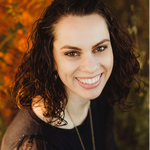 Gina Ann Zurlo (2017, PhD) received her PhD from Boston University School of Theology in 2017 and is Co-Director of the Center for the Study of Global Christianity at Gordon-Conwell Theological Seminary (South Hamilton, MA). As a historian and social scientist, she is interested in the intersection of World Christianity, women’s studies, global history, and mixed-methods research. Her most recent publication, with Todd M. Johnson, is the World Christian Encyclopedia, 3rd edition (Edinburgh University Press, 2019) and she is also co-editor of the World Christian Database (Brill). Dr. Zurlo is a Visiting Research Fellow at Boston University’s Institute on Culture, Religion and World Affairs, where she is Editor-in-Chief of the peer-reviewed Journal of Religion and Demography and works on the World Religion Database (Brill). She teaches courses on World Christianity, women in World Christianity, American Christian history, and mission history. She has forthcoming books on Christianity around the world (Zondervan, 2022) and on women in World Christianity (Wiley-Blackwell, 2023). Dr. Zurlo was named one of the BBC’s 100 Women of 2019 for her work on quantifying religion, in particular, the important role of women in religion around the world. She is married with two daughters and lives on the North Shore of Boston.
Gina Ann Zurlo (2017, PhD) received her PhD from Boston University School of Theology in 2017 and is Co-Director of the Center for the Study of Global Christianity at Gordon-Conwell Theological Seminary (South Hamilton, MA). As a historian and social scientist, she is interested in the intersection of World Christianity, women’s studies, global history, and mixed-methods research. Her most recent publication, with Todd M. Johnson, is the World Christian Encyclopedia, 3rd edition (Edinburgh University Press, 2019) and she is also co-editor of the World Christian Database (Brill). Dr. Zurlo is a Visiting Research Fellow at Boston University’s Institute on Culture, Religion and World Affairs, where she is Editor-in-Chief of the peer-reviewed Journal of Religion and Demography and works on the World Religion Database (Brill). She teaches courses on World Christianity, women in World Christianity, American Christian history, and mission history. She has forthcoming books on Christianity around the world (Zondervan, 2022) and on women in World Christianity (Wiley-Blackwell, 2023). Dr. Zurlo was named one of the BBC’s 100 Women of 2019 for her work on quantifying religion, in particular, the important role of women in religion around the world. She is married with two daughters and lives on the North Shore of Boston.
BUSTH Announces New Anglican-Episcopal Studies Certificate
 Boston University School of Theology (BUSTH) is pleased to announce the approval of a new Certificate in Anglican-Episcopal Studies. The certificate program was designed to prepare students for life and work in the Anglican and Episcopal traditions, though it is open to any interested student. The certificate can be earned in conjunction with degree program requirements at BUSTH, or as a stand-alone certificate.
Boston University School of Theology (BUSTH) is pleased to announce the approval of a new Certificate in Anglican-Episcopal Studies. The certificate program was designed to prepare students for life and work in the Anglican and Episcopal traditions, though it is open to any interested student. The certificate can be earned in conjunction with degree program requirements at BUSTH, or as a stand-alone certificate.
“The new certificate in Anglican-Episcopal Studies signals STH’s commitment to building a robust program of study and formation in the history, theology, polity, spirituality, and liturgy of Anglican and Episcopal faith traditions,” says Associate Dean for Academic Affairs Bryan Stone. “These expanded academic offerings will complement our Anglican-Episcopal Community of Learning, and will be a tremendous resource for us all.”
To earn the certificate, students must take four courses from the approved list, which includes courses such as History of the Episcopal Church, Book of Common Prayer, Dismantling White Privilege, and Worship in the Anglican and Wesleyan Traditions. An additional two semesters of Anglican Formation are required to complete the certificate.
Rev. Kori Pacyniak (STH’15) featured in The New Yorker Article “The Women Who Want to be Priests”
This article was originally published online by The New Yorker on June 21, 2021 and in the print edition of the June 28, 2021, issue, with the headline “Women on the Verge.”
Reverend Kori Pacyniak, (STH'15) is the first known transgender and non-binary person to be ordained within the Roman Catholic women priest movement.
Excerpt:
Pacyniak studied religion and Portuguese at Smith College in the early two-thousands, got a master’s in divinity from Harvard, and then went to Boston University, for a master’s in theology and trauma. At all three institutions, they encountered friendly people from the Episcopal Church—the perpetual temptation of liberal Catholics fed up with the Church’s teachings on gender and sexuality. But Pacyniak felt Catholic to their bones. They happily went to chapel with their new friends, but, as Pacyniak put it to me, “I was, like, ‘I’m not going to become an Episcopalian just because they ordain women.’ ” They did not want to be driven away and leave Catholicism to what they saw as antediluvian forces. They thought, “I’m going to stay and fix my church somehow.”
A Hero/Heroine’s Journey: A Road Map to Trauma Healing by Rev. Federico G. Carmona (STH’02,’08) Published on Counseling Today
This article was originally published by American Counseling Association in the July 2021 issue of its flagship publication Counseling Today. It is also published online by the same institution on July 8, 2021 and can be found here.
Federico Carmona is a certified clinical trauma professional working as a trauma therapist at Peace Over Violence in Los Angeles. Federico works with survivors of domestic and sexual violence and child abuse who are experiencing the devastating effects of posttraumatic stress disorder, complex trauma, trauma bonding and related psychological afflictions. Contact Federico at fcarmona@mac.com.
A hero/heroine’s journey: A road map to trauma healing
By Federico Carmona
“Counselors can encourage clients on a journey to transform their pain and fear into a guiding wisdom that leads them toward self-awareness and emotional growth.”
Excerpt:
We tend to perceive and pursue healing, happiness, meaning and self-fulfillment as a linear and clear destination. However, these quests are meant to be experienced as a journey and not as one’s end goal. In the progression of the journey, one can experience healing and continue to pursue it. That is because there will always be something to heal in our physical, emotional and spiritual selves. Life never stops giving us challenges that provide us with valuable experiences.
Overcoming psychological trauma, while growing emotionally, intellectually and spiritually, is a journey that can be viewed as both challenging and rewarding. I would go so far to say that healing from trauma is a sacred journey. It requires venturing into the deep self to plant the seeds of healing, ultimately bringing forth a better version of one’s self. However, this journey requires a hero. The person affected by trauma is the one who embarks on this journey, and there is no vicarious substitution for the journey.
“Many people would prefer to decline the invitation or call to healing because there is something comparatively cozy about that state of trauma.”
The proposed road map to trauma healing works well in 12-week psychoeducational groups of 90-minute sessions. The idea is to empower qualified participants with a concrete structure and strategies to do the work on their own. Each session is designed to introduce group members to new coping skills and life strategies to help them:
- Establish a sense of safety
- Achieve emotional regulation
- Integrate traumatic experiences
- Move beyond trauma
Professor Emerita Walter E. Fluker, Ph.D., (GRS’88, STH’88), Thomas W. Porter, Jr., J.D., (LAW’74), Rev. Kelly Elizabeth Fassett, (STH’19), and Boston Mayor Kim Janey Give Keynote Addresses at Cooperative Metropolitan Ministries’ 55th Annual Fundraiser
Read CMM's Annual Fundraiser 2021 booklet here and the event recording below.
Professor Emerita Walter E. Fluker, Ph.D., (GRS'88, STH'88), Thomas W. Porter, Jr., J.D., (LAW'74), Rev. Kelly Elizabeth Fassett, (STH'19), and Boston Mayor Kim Janey give keynote addresses at Cooperative Metropolitan Ministries’ 55th Annual Fundraiser, on the theme of From Trauma to Triumph, celebrating 55 Years of Service Towards an Inclusive American Narrative.
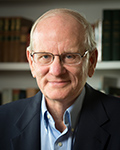 Thomas Porter, Jr. is a trial lawyer, mediator, teacher and minister. At Boston University School of Theology, where he has taught since 2005, he is a lecturer and co-director of the Religion and Conflict Transformation Program. He helped create and directed from 2000-2012 the JUSTPEACE Center for Mediation and Conflict Transformation in The United Methodist Church. After graduating from Yale University, he received a MDiv from Union Theological Seminary and a J.D. from Boston University Law School. He studied mediation at Harvard Law School and Eastern Mennonite University. Tom is an elder in the United Methodist Church and a member of the New England Annual Conference, where he was the chancellor for 23 years. He was a founding partner of the trial firm of Melick & Porter LLP in 1983 and has been a trial lawyer since 1974, representing religious institutions, universities, hospitals, professionals, nonprofit organizations, and others. He was one of founders of the Journal of Law and Religion and was chair of the board from 1989 through 2001. He was a founder and the president of the Council of Religion and Law, a society of law professors and theologians as well as lawyers and ministers, from 1978 to 1985. He was a member of the board of Union Theological Seminary, chairing its educational policy committee, from 1992 to 2001. And tonight, he is a recipient of the Rev. Charles Harper Lifetime Achievement Award, named for the first executive director of CMM, recognizes transformative long-term leadership of an individual in service to the principles of the CMM Mission statement.
Thomas Porter, Jr. is a trial lawyer, mediator, teacher and minister. At Boston University School of Theology, where he has taught since 2005, he is a lecturer and co-director of the Religion and Conflict Transformation Program. He helped create and directed from 2000-2012 the JUSTPEACE Center for Mediation and Conflict Transformation in The United Methodist Church. After graduating from Yale University, he received a MDiv from Union Theological Seminary and a J.D. from Boston University Law School. He studied mediation at Harvard Law School and Eastern Mennonite University. Tom is an elder in the United Methodist Church and a member of the New England Annual Conference, where he was the chancellor for 23 years. He was a founding partner of the trial firm of Melick & Porter LLP in 1983 and has been a trial lawyer since 1974, representing religious institutions, universities, hospitals, professionals, nonprofit organizations, and others. He was one of founders of the Journal of Law and Religion and was chair of the board from 1989 through 2001. He was a founder and the president of the Council of Religion and Law, a society of law professors and theologians as well as lawyers and ministers, from 1978 to 1985. He was a member of the board of Union Theological Seminary, chairing its educational policy committee, from 1992 to 2001. And tonight, he is a recipient of the Rev. Charles Harper Lifetime Achievement Award, named for the first executive director of CMM, recognizes transformative long-term leadership of an individual in service to the principles of the CMM Mission statement.
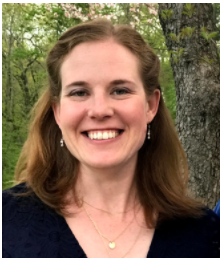 Rev. Kelly Fassett has served as the Executive Director for UniteBoston since 2012 and has been the catalyst for UniteBoston’s bridge-building work throughout Christians in the region. She has a certificate in Christian Foundations from Gordon-Conwell Theological Seminary. She also graduated with her MDiv in Global and Community Engagement at Boston University in 2019, with certificates in Religion and Conflict Transformation as well as International Mission and Ecumenism. She has also worked as a consultant to organize the New England City Forum and has spoken at conferences around concepts related to evangelism, mission, Christian unity, and conflict transformation. Kelly and her husband Andrew are both ordained ministers with the American Baptist Churches of Massachusetts and live in an intentional Christian community in the Dorchester area. They have one daughter named Abigail and enjoy spending time outdoors.
Rev. Kelly Fassett has served as the Executive Director for UniteBoston since 2012 and has been the catalyst for UniteBoston’s bridge-building work throughout Christians in the region. She has a certificate in Christian Foundations from Gordon-Conwell Theological Seminary. She also graduated with her MDiv in Global and Community Engagement at Boston University in 2019, with certificates in Religion and Conflict Transformation as well as International Mission and Ecumenism. She has also worked as a consultant to organize the New England City Forum and has spoken at conferences around concepts related to evangelism, mission, Christian unity, and conflict transformation. Kelly and her husband Andrew are both ordained ministers with the American Baptist Churches of Massachusetts and live in an intentional Christian community in the Dorchester area. They have one daughter named Abigail and enjoy spending time outdoors.
 Rev. Dr. Walter Fluker was born in Vaiden, Mississippi and raised in Chicago, Illinois where he attended public schools. He served in the United States Army as a Chaplain’s Assistant from 1971-1973. He received his BA in philosophy and biblical studies from Trinity College in 1977, and an MDiv in 1980 from Garrett-Evangelical Theological Seminary. Fluker completed his PhD in social ethics at Boston University, in 1988. He retired from the Boston University School of Theology in June 2020. Early in his career, he served as a local pastor, lecturer, and chaplain of many schools. Fluker went on to be a distinguished speaker for the US Embassy in Abuja and Lagos, Nigeria; Cape Town, Pretoria and Durban, South Africa, China; and India. Having served visiting professorships at the Harvard College and Divinity School and Candler School of Theology; and visiting scholar at Princeton Theological Seminary, and Columbia Theological Seminary. Fluker joined the Boston University School of Theology faculty as the Martin Luther King, Jr. professor of ethical leadership and director of the Martin Luther King, Jr. Initiative for the Development of Ethical Leadership in 2010. He consulted for the Democratic Leadership Council National Conversation, Goldman Sachs Global Leaders Program, the Department of Education, the Department of State, the Boys and Girls Clubs of America, the Georgia State Superintendents’ Association, and the Congressional Black Caucus Foundation. And tonight, he is our other recipient of the Rev. Charles Harper Lifetime Achievement Award.
Rev. Dr. Walter Fluker was born in Vaiden, Mississippi and raised in Chicago, Illinois where he attended public schools. He served in the United States Army as a Chaplain’s Assistant from 1971-1973. He received his BA in philosophy and biblical studies from Trinity College in 1977, and an MDiv in 1980 from Garrett-Evangelical Theological Seminary. Fluker completed his PhD in social ethics at Boston University, in 1988. He retired from the Boston University School of Theology in June 2020. Early in his career, he served as a local pastor, lecturer, and chaplain of many schools. Fluker went on to be a distinguished speaker for the US Embassy in Abuja and Lagos, Nigeria; Cape Town, Pretoria and Durban, South Africa, China; and India. Having served visiting professorships at the Harvard College and Divinity School and Candler School of Theology; and visiting scholar at Princeton Theological Seminary, and Columbia Theological Seminary. Fluker joined the Boston University School of Theology faculty as the Martin Luther King, Jr. professor of ethical leadership and director of the Martin Luther King, Jr. Initiative for the Development of Ethical Leadership in 2010. He consulted for the Democratic Leadership Council National Conversation, Goldman Sachs Global Leaders Program, the Department of Education, the Department of State, the Boys and Girls Clubs of America, the Georgia State Superintendents’ Association, and the Congressional Black Caucus Foundation. And tonight, he is our other recipient of the Rev. Charles Harper Lifetime Achievement Award.
New Translations and Books published by Fr. Peter A. Chamberas (STH’65)
The press release was originally published by the Greek Orthodox Archdiocese of America, and can be found here.
Fr. Peter A. Chamberas, a retired clergyman of the Greek Orthodox Archdiocese of America, has completed a number of new works to add to his extensive collection of translations and essays. The new works: Athonite Flowers, Ten Essays on the Spiritual Life by Monk Moses of Mt. Athos; The Triads in Defense of those who Practice Sacred Quietude by St. Gregory Palamas; and a new edition of The Mystery of Repentance and Confession in the Orthodox Church are now available at www.NewfoundPublishing.com.
Fr. Chamberas, a 1961 graduate of Holy Cross Greek Orthodox School of Theology, was born in Greece and came to America in 1946 when he was eight years old. After graduating from HCHC he returned to Athens twice for graduate studies at the University of Athens, receiving the Licentiate degree in 1964 and later, after returning to Boston and receiving the STM degree from Boston University, School of Theology, in 1965, he returned to Athens and earned his ThD degree from the University of Athens in 1970.
While attending Boston University, Fr. Chamberas was recruited by Holy Cross Press to translate into English a Greek study by the then visiting professor from Thessaloniki,Konstantinos D. Kalokyres, entitled Ἡ Οὐσία τῆς Ὀρθοδόξου Εἰκονογραφίας. Over the years, this book has appeared in several editions as The Essence of Orthodox Iconography.
This initial translation was followed by many others over the years.
Later in life, when Fr. Chamberas came out of retirement to serve as the Resident Chaplain at HCHC during the years 2007-2015, he once greeted and talked with one of the visiting parents of two students at HCHC. The parent immediately asked him: “Are you the one who translated, ‘The Essence of Orthodox Iconography?’ That book has changed the course of my professional life!” That parent was Elias Damianakis, who is now recognized as a well-known and successful iconographer in America.
Currently, Fr. Chamberas divides his time between New Hampshire and Florida, and is still translating and writing, hoping to produce additional resource materials that could help the new generations of clergy in their parish ministry. Most of his past work is listed on his website and some of his more recent work is also now available at www.NewfoundPublishing.com
Floyd R. Stradley, D.Min. (STH’85)
This obituary was originally published on the News-Gazette, on July 3, 2021.
 The Rev. Dr. Floyd R. Stradley, an ordained United Methodist minister, went to be with his heavenly father Tuesday, June 15, 2021.
The Rev. Dr. Floyd R. Stradley, an ordained United Methodist minister, went to be with his heavenly father Tuesday, June 15, 2021.
He was born Sept. 30, 1933, in Arkansas and grew up in Decatur, where his parents moved soon after his birth. He married Donna Hiser on June 22, 1957, at First E.U.B. Church in Decatur. A homemaker, Donna was always beside him from the time they began dating in college through a marriage of almost 64 years. Floyd graduated from Millikin University in 1955 and the Evangelical Theological Seminary (now Garrett-Evangelical Theological Seminary) in 1958, where he received his master of divinity degree. He subsequently earned his doctor of ministry from Boston University School of Theology in 1985. Stradley was a parish pastor, blessing and being blessed by experiences gained in small towns, growing suburbs and cities. He served seven churches in all: Gibson City E.U.B., Peoria University UMC (associate pastor), Delavan UMC, Decatur Christ UMC and senior pastor at Morton UMC, Champaign First UMC and Kankakee St. Mark UMC, all of which belong to the Illinois Great Rivers Conference. A believer in ministry beyond the local church, he was active in councils of churches, ministerial associations and various youth camps. His conference service included District Committees of Church Location and Building, Conference Health Insurance Committee, Commission on Equitable Compensation, Conference Board of Ordained Ministry and multiple terms as chairperson of the Conference Board of Pensions. Service to the greater community included several years on the Board of Trustees of Peoria's Methodist Medical Center. An active Rotarian for over four decades, he served as president of the Morton club.
His parents, John and Clarice Stradley, preceded him in death, as did his brother, Cecil.
Survivors include his wife, Donna (Hiser); son, Craig (Jacqui) of Philadelphia; daughter, Janis (Dave Wright) of Chicago; grandchildren, Meredith Stradley (Alex Mitchell) of Washington, D.C., and Kendrick Stradley of Honeybrook, Pa.; and great-grandson, Mack William Mitchell.
Also surviving are his nephew, Mark Stradley; stepgrandchildren, Mitch (Jess) Wright, Kendall Wright and Delaney Wright; and stepgreat-granddaughter, Milah Wright.
Visitation will take place at 10 a.m., followed by a celebration of life service at 11 a.m. Saturday, July 10, at Asbury United Methodist Church, 196 S. Harrison Ave., Kankakee, IL 60901.
Memorials can be made to Asbury United Methodist Church, Kankakee. Arrangements by Clancy-Gernon Funeral Home, 815-932-1214. Please sign his guest book at clancygernon.com.
Dr. Hoyt P. Oliver (STH’62)
This obituary was originally published on Caldwell & Cowan Funeral Home, on June 15, 2021.
 Hoyt Peder Oliver, 85, died at home in Oxford on June 15, 2021. He was preceded in death by parents The Reverend Young Allen Oliver and Selma Pederson Oliver, and sister Linda Oliver Long. He is survived by his wife of 57 years, LaTrelle (Blackburn), children Laurie and Erik, and grandsons Lucas, Simon, and Arthur.
Hoyt Peder Oliver, 85, died at home in Oxford on June 15, 2021. He was preceded in death by parents The Reverend Young Allen Oliver and Selma Pederson Oliver, and sister Linda Oliver Long. He is survived by his wife of 57 years, LaTrelle (Blackburn), children Laurie and Erik, and grandsons Lucas, Simon, and Arthur.
Hoyt was best known as a professor at Oxford College of Emory University, where he expanded the minds of thousands of students through courses in philosophy, sociology, and religion for forty years. However, he was also an avid gardener who shared generously, an outdoorsman who instilled that love in his children and grandchildren, a talented cook who nourished family and guests, a masterful woodworker who "released" beautiful sculptures, a vocalist who sang with his church choir for nearly sixty years, a calming counselor for couples he was to join in matrimony, a servant of the community through many civic endeavors, a true partner in leadership, an infamous humorist, a mentor, and a visionary.
As children of Methodist ministers, both Hoyt and LaTrelle had moved every few years; hence they sought to put down deep roots in one special community, Oxford. Hoyt's path was like a Möbius strip in that his post secondary academic studies and career began and ended with Emory. In addition to a certificate (AA) from "Emory at Oxford" and a BA (philosophy) from Emory, Hoyt completed a Bachelor of Sacred Theology from Boston University and a PhD in Religion in Higher Education from Yale University. For three years between Emory and Boston, he served with the Methodist Board of Global Ministries as a short term missionary in Seoul, Korea. An Eagle Scout himself, he led a Boy Scout troop there and taught English in two schools. He became The Reverend Doctor through ordination into the ministry of the Methodist Church in 1962 and returned to Oxford to join the faculty of Oxford College in 1966.
A celebration of his life will be held Saturday, July 17, 2021, 2:00 PM, at Allen Memorial United Methodist Church, 803 Whatcoat Street, Oxford. In lieu of flowers, gifts in his memory may be made to Allen Memorial UMC, PO Box 117, Oxford, GA 30054, or Oxford College of Emory University Scholarship Fund, 801 Emory Street, Oxford, GA 30054.
Rejoice, smile, and laugh, for as he would say, "I've gone OHM."
Prof. Luis Menéndez-Antuña Receives Society of Biblical Literature 2021 Diamond Award for Integrative Scholarship
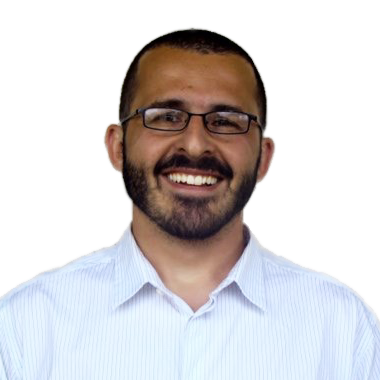 Assistant Professor of New Testament Luis Menéndez-Antuña was recently awarded the Society of Biblical Literature (SBL) 2021 A. R. Pete Diamond Award for Integrative Scholarship for his recent article “The Gospel of Torture: Mark 15 and the Body in Pain.”
Assistant Professor of New Testament Luis Menéndez-Antuña was recently awarded the Society of Biblical Literature (SBL) 2021 A. R. Pete Diamond Award for Integrative Scholarship for his recent article “The Gospel of Torture: Mark 15 and the Body in Pain.”
The Diamond Award for Integrative Scholarship supports junior-level academic scholars who demonstrate “innovative approaches in biblical studies that advance methodological work at the intersection of historical criticism, critical theory, and cultural studies.” The award is distributed annually and is given in memory to the legacy of former SBL member A. R. Diamond, who faithfully encouraged new and innovative work among his students in the field of biblical studies.
Prof. Menéndez-Antuña offers this background on his award-winning article: “This article (forthcoming in the Journal of the American Academy of Religion) explores how being attentive to the constitutive elements of torture and to the testimonials of contemporary victims that have survived such torment help us read, understand, and experience crucifixion narratives as instances where trauma, pain, and agony strive to find linguistic expression. This article also explores how despite such difficulty to find words, torture and its ensuing pain inform many literary topics in the Gospel like the temple and discipleship.”
